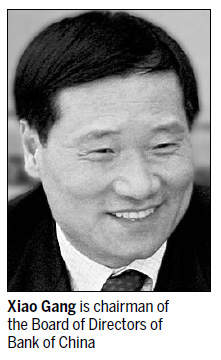If it ain't broke, don't fix it

The merger of NYSE Euronext and Deutsche Boerse, a defining event of the accelerated financial globalization in 2011, creates the world's largest stock exchange. It starts a new round of competition in the exchange industry among the international financial centers. Hong Kong, as one of China's international financial centers, must actively address the challenges on its own instead of simply following suit.
Usually, stock and futures exchanges, with their safe and efficient operations, are portrayed as an important part of a country or a region. Securities and derivatives are traded under local regulatory frameworks and supervision.
In the 1990s, however, the global exchange industry entered an internationalization period because of intensified competition. The London Stock Exchange has bought Borsa Italiana and is in talks to buy TMX Group, owner of the Toronto stock exchange. Nasdaq has bought OMX, a Swedish-Finnish financial exchange company. The Singapore Exchange is trying to take over the Australian Securities Exchange. Even Chicago's two big exchanges have merged. Also, BATS Global Markets is in talks to set up a new stock exchange in Brazil.















